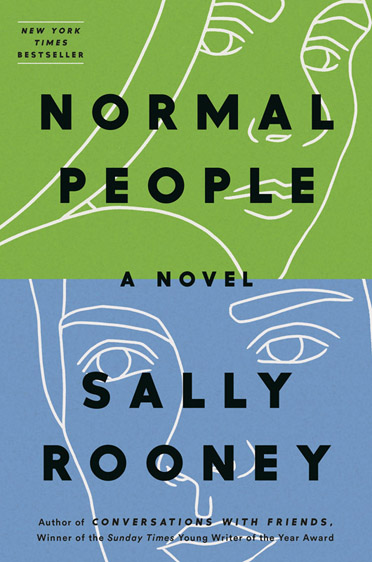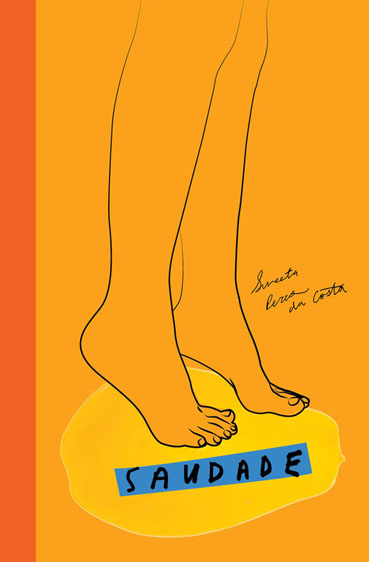Dessa: Italics are what letters would wear to a cocktail party. They’re fancy, but not, like, calligraphy-fancy. They’re style-conscious, but still legible (nobody’s trying to go home with a wingding). Sarcasm and emphasis are the two best uses of italics. They are the power couple at the typesetter’s afterparty, gliding through the room as if they are on rollerskates, metering out devastating little quips, and occasionally venturing to the guest bedroom where they may or may not be doing cocaine.
On the next social rung, we have the italicized Supreme Court cases and the names of warships. Milling in general admission are the book titles, album names, TV shows, and magazines. The absolute worst reason to use italics is for the inclusion of a foreign phrase in English text. First, it’s needless—the average reader can be trusted to realize when they’ve hit another language. Second, it makes the whole endeavor feel a little precious, as if the French or Farsi is too fragile to roughhouse with everybody else.
I mention my blind prejudice against italicized foriegn words because I am the absolute last person who could be trusted to provide a fair assessment of the book called Saudade. It’s full of Portuguese in italics, Konkani in italics, and at least a few instances of Latin phrases too. (For the record, I happen to love the kohl-lined look and Portuguese food. It’s just that I want all the letters in them to stand up straight, dammit.). I am not, as you can see, an impartial juror in the case of Saudade. I’m essentially the vegetarian writing a restaurant review of Fogo de Chão. (Yes, bro, I know about the salad bar.) That said, here we go:
Suneeta Peres da Costa, author of Saudade, relays the impressions of her main character as she grows up in Angola with a mother teetering on the brink of mental illness and an angry dad whose job keeps him in the pocket of colonial Portuguese powers. Her narrative skips through time and place without much signing-posting and I’ll concede that the frequency of foreign phrases does give the book a particular dreamy feel—the undefined italicized words impart a world of meaning and association not immediately accessible to the reader who’s not fluent in Portuguese.
My favorite passage of the book happens on the first page: “I dreamt I saw my father walking this way: walking backward, his face to me, his feet headed toward oblivion. My mother told me that the dead walk backwards.”
That image—of a person with feet pointing wrong-way round—is spooky and sticky and cool. And it’s evidence of an undeniable poetry that runs through the book (even if this particular reader didn’t swipe right on her prose).
Now, let’s get down to business and lead the victor of this match to the center of the octagon. Sally Rooney’s Normal People follows an on-again off-again romantic relationship that begins in high school and continues through—well, tough to say exactly. In the years that we see Marianne and Connell orbiting through each other’s lives and each other’s beds, their power dynamic shifts according to their changing circumstances—she’s rich but lonely in childhood; he’s the popular soccer player. She’s sleek and fashionably cynical in college; he’s the working-class kid sucking rarified air at a fancy university. I googled Rooney halfway through the read and was relieved to see her described as a committed Marxist—it alleviated my anxiety that maybe I was just reading a romance novel. (And there’s another senseless prejudice of mine, this one born of the Midwestern belief that doing something only because it is fun would be an indefensible indulgence. Why read genre fiction for pleasure when you could be plowing?)
Normal People is full of exchanges in which characters misunderstand each other—a breakup conversation, for example, in which each party feels the other did the breaking. That sort of thing happens a lot in real life, but takes serious skill to relay—much easier done than said. The camerawork is badass too—the novel moves nimbly to zoom in on tiny moments of her character’s subjective experience. During a drunken makeout in someone else’s living room, for example, Connell loses track of the gyroscope in his own body:
He was no longer sure whether he was sitting up on the sofa or reclining backward against the arm. As an experiment he tried to sit up, which confirmed he was in fact sitting up already, and the small red light which he thought might have been on the ceiling above him was just a standby light on the stereo system across the room.
My major reservations had to do with sex and gender: I sometimes wondered if our male lead bore a few tool marks of his female writer. During sex scenes, for example, Marianne’s experience was vivified with details of her sensation—a cheek mashed on the mattress, say. But I knew less about how it felt in Connell’s body. And the inner voice of Connell’s introspection often used language and lenses more frequently encountered in conversation with feminist women who’ve spent a good deal of time studying power structures and deconstructing gender roles. Which sometimes gave Connell a Peter Pan effect—a boyish protagonist played by Mary Martin on the wire.
All that said, Mary Martin slayed it, gender is hella confusing to begin with, and I would love to meet a guy like Connell—if Marianne hadn’t yet locked it down, I would totally ask him on a date (and would double-check that the standby light on my stereo was unobstructed, just in case).
From our match sponsor: Quail Ridge Books is proud to be Raleigh, NC’s trusted community bookstore. Earlier in the year, Ann Patchett (author of 2019’s The Dutch House) said she could do a whole book tour in just North Carolina (and she almost did!). The Research Triangle area is home to The North Carolina Book Festival, several universities, and some of the world’s best bookstores: Bookmarks in Greensboro, Flyleaf Books in Chapel Hill, Letters Bookshop in Durham, McIntyre’s Books in Pittsboro, Page 158 Books in Wake Forest, Regulator Books in Durham, Scuppernong Books in Greensboro, So & So Books in Raleigh, and so many more! As a reminder, Quail Ridge Books has FREE SHIPPING on all of your book orders for the foreseeable future.
Match Commentary
By Zelda Olentia & Rosecrans Baldwin
Rosecrans Baldwin: Today I’m joined in the conversation booth with another of this year’s Reader Judge finalists, Zelda Olentia. Zelda, can you give us an idea of who you are when you’re not participating in the ToB?
Zelda Olentia: I’m a product manager at a software startup by day and an avid reader by night (and bus, and waiting room, and Saturday morning…you get the picture). It goes without saying I’m a huge Rooster fan. I spend most of my day knee-deep in research and writing technical requirements; these reviews always feel like a treat in the middle of the day—and a psychic break while everyone talks about basketball.
Rosecrans: Or the lack of it, at least this month. Today’s judgment—how are you feeling? Have you read either book? Are you double-checking your standby light for either title, as it were?
Zelda: I’ve loved the contrasts in matchups we’ve seen so far and our reviewers this year haven’t disappointed—lots of juicy, spicy opinion and I am here for it. Dessa’s review was no exception, even if I was 51 percent rooting for little Saudade to keep up its run after knocking out presumed-behemoth The Testaments in the opening round (said as a hardcore Atwood fan, natch).
Rosecrans: In your reading experience, do you ever feel like the vegetarian reviewer, as the judge puts it? Meaning, I think, you feel like you’re the wrong reader for the book. If so, what is that most often puts you off?
Zelda: Absolutely. General statements being what they are (and what they miss), I think any female-identifying person who loves sci-fi feels often like our queen, Ursula K. Le Guin—“Gentlemen, I just don’t belong here”—especially picking up 90 percent of so-called “classic” science fiction from the last four, even five decades. It can be so despiriting to see characters that you are supposed to identify with, but clearly show that the author hasn’t had more than a topical conversation with a woman or a person of color since a few presidents ago. That being said, these times they are-a-changing and there are so many great writers coming out with killer stories that have lessened that vegetarian feeling Dessa so aptly described.
Rosecrans: Well, on that note, any recent titles or writers you’re loving?
Zelda: I adored both of Carmen Maria Machado’s collections: Her Body and Other Parties and In the Dream House. From this year’s bracket is my personal pick, The Water Dancer from Ta-Nehisi Coates. There’s also Disappearing Earth from Julia Phillips—a total treat. Next in my TBR pile is The Hidden Girl by Ken Liu and The Mercies by Kiran Millwood Hargrave, but first I have to finish Children of Ruin from Adrian Tchaikovsky.
Rosecrans: One of the issues the judge addresses is the incorporation of non-English words in an English-language novel. Do you find this problematic? What’s the effect on your perception of a text?
Zelda: As much as I loved Dessa’s review, I do have to disagree on that. We get so few Rest of World novels translated and published here in the US, I feel like any book that gives me even a sliver into another culture’s language is a gem, and I’m better for the experience. That can be directly in context—describing how characters eat dinner together, how things go awry in translations, and also more subtly—“this is how our language sounds.” There isn’t a direct word-for-word translation of “Saudade” from Portugese to English; it's a concept and a sound that enriches the experience.
Rosecrans: When Normal People lost its opening-round match, many readers in the Commentariat said or suggested they found all the critical fawning over its author to be distracting, even aggravating—similar, in a way, to Judge Dessa’s irritation with italicized text. Is that an issue for you, when the cult of personality around an author intrudes on reading what they wrote?
Zelda: I’m going to take the side of the Commentariat on this one, to an extent (which I’ll get to). A book needs to stand on its own, at least to the extent of judging here at the ToB. I think one of the lovely things about it as a concept is to separate the author from the work and judge it solely on its own—we saw that with The Testaments in its opening-round match with Saudade. If it was all about cult of personality, Margaret Atwood would’ve run through the competition without pause (I’m assuming so, at least) and that frankly has been a criticism of the book, especially when it made the Man Booker list before even being published.
That said, there’s a larger conversation happening now about how much you can seperate an artist from their art. Does it matter what kind of person they are, if you get a strong feeling from experiencing their work? What if they are terrible people, but they can write a character that reminds you that you’re a little less alone in this loud, overwhelming world? I don’t have an answer yet, but for now, at least when it comes to Normal People, the people have spoken.
Rosecrans: So, here we have a book like Normal People getting knocked out in the beginning, only to wind up entering—via undead carcass—the championship match on the back of its popularity with the ToB reading public. How does that sit with you?
Zelda: Well, isn’t that the purpose of the Zombie Round? I love that we as readers get a chance to bring back a book from the opening round—usually those books are more interesting, more intriguing, for the fact that there isn’t a homogenous response to them—it takes a dedicated effort to bring them back. Sometimes I’m wary of a book that only gets lavish praise. Really, is any part of it a challenge? Did any part of it make you think, or make you uncomfortable? Plus, people have to have some hope after their brackets bust in the opening round. Otherwise, what’s the fun of playing?
Rosecrans: Too true! Thanks, Zelda, for joining us today. We’ll see everybody in the comments, then back again on Monday for the second match of the Zombie Round.
New 2020 Tournament of Books merch is now available at the TMN Store. As a reminder, Sustaining Members receive 50 percent off everything in our store. To find out why we’re asking for your support and how you can become a Sustaining Member, please visit our Membership page. Thank you.
Welcome to the Commentariat
Population: You
To keep our comments section as inclusive as possible for the book-loving public, please follow the guidelines below. We reserve the right to delete inappropriate or abusive comments, such as ad hominem attacks. We ban users who repeatedly post inappropriate comments.
- Criticize ideas, not people. Divisiveness can be a result of debates over things we truly care about; err on the side of being generous. Let’s talk and debate and gnash our book-chewing teeth with love and respect for the Rooster community, judges, authors, commentators, and commenters alike.
- If you’re uninterested in a line of discussion from an individual user, you can privately block them within Disqus to hide their comments (though they’ll still see your posts).
- While it’s not required, you can use the Disqus
tag to hide book details that may spoil the reading experience for others, e.g., “ Dumbledore dies .” - We all feel passionately about fiction, but “you’re an idiot if you loved/hated this book that I hated/loved” isn't an argument—it’s just rude. Take a breath.




